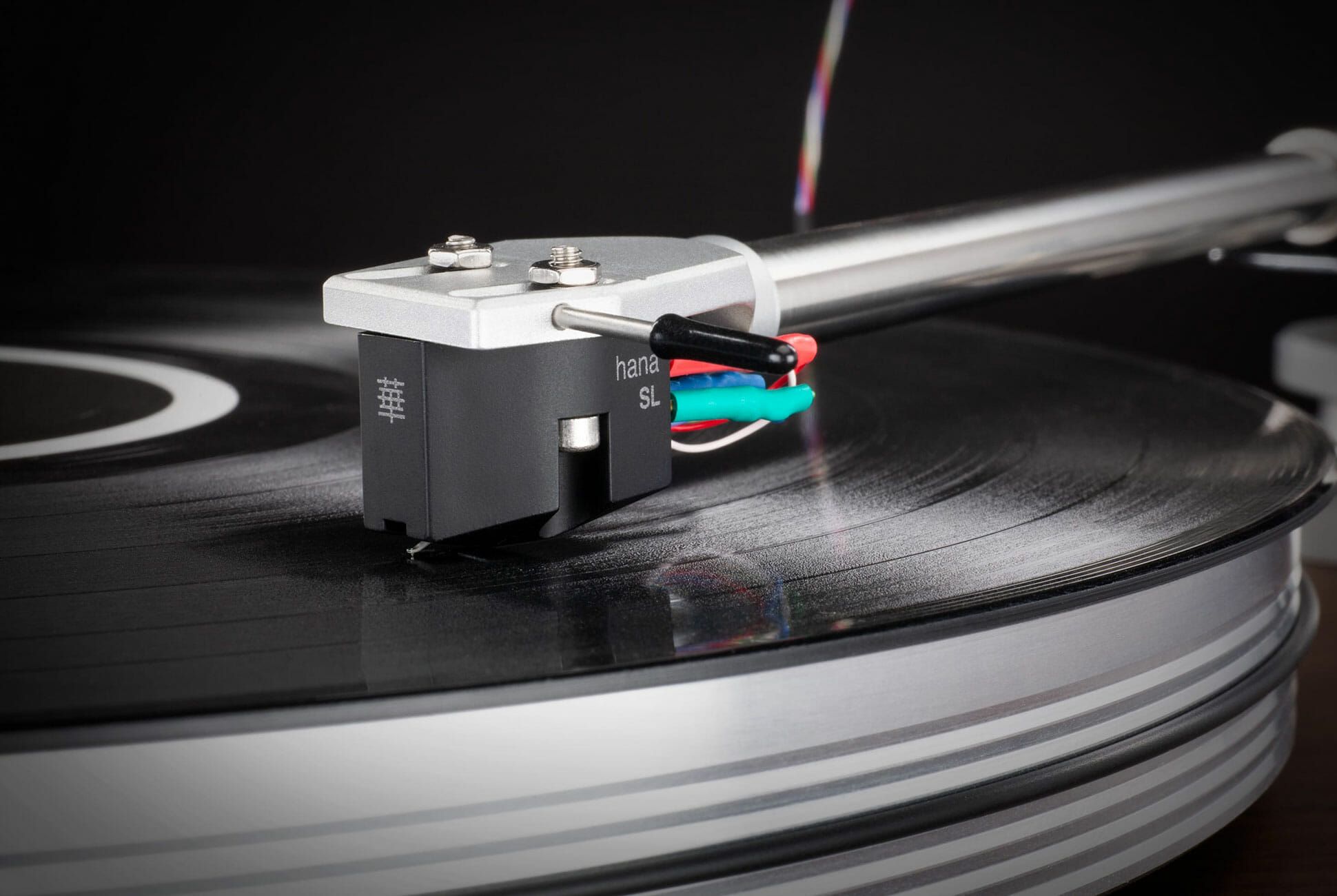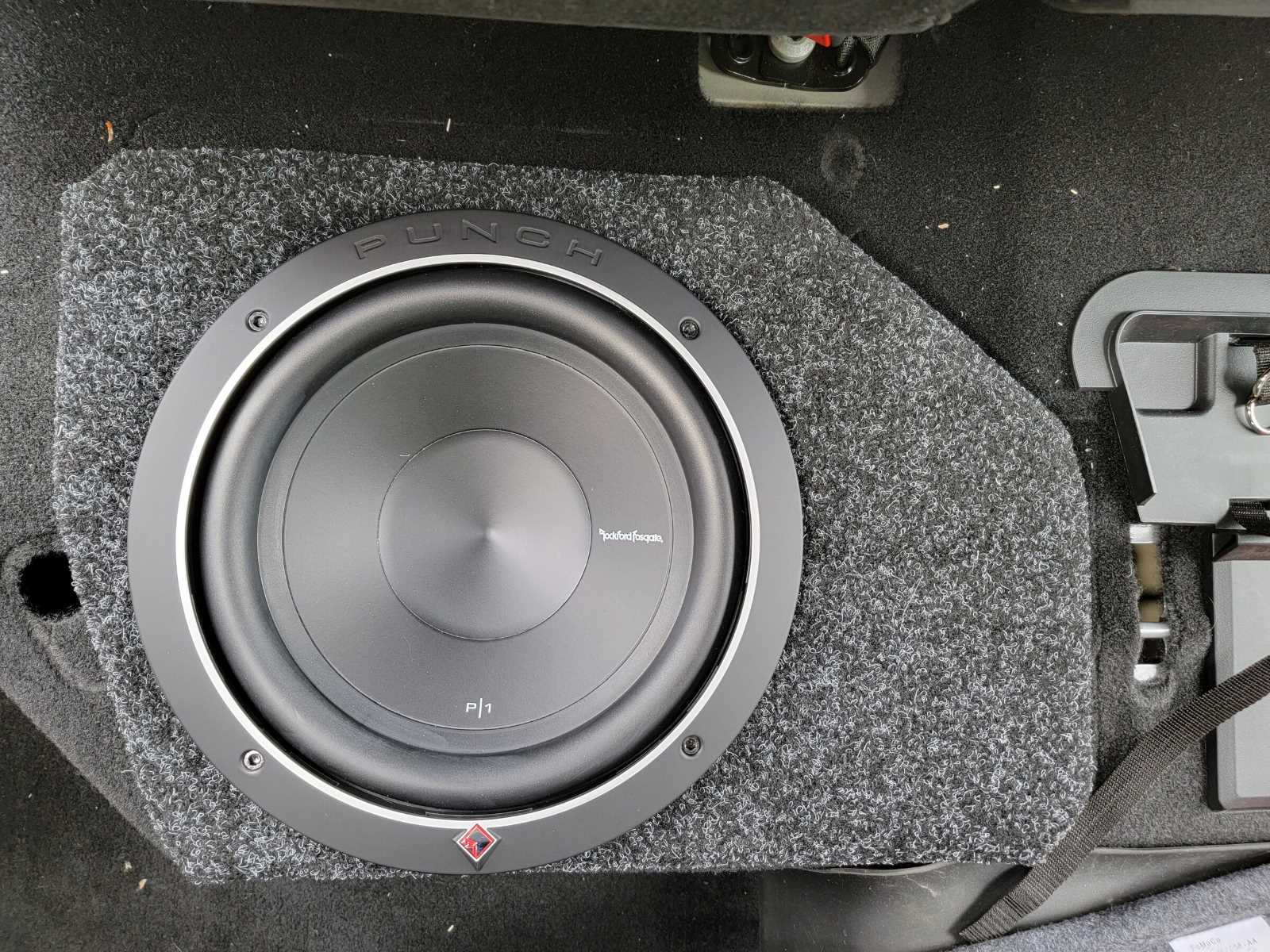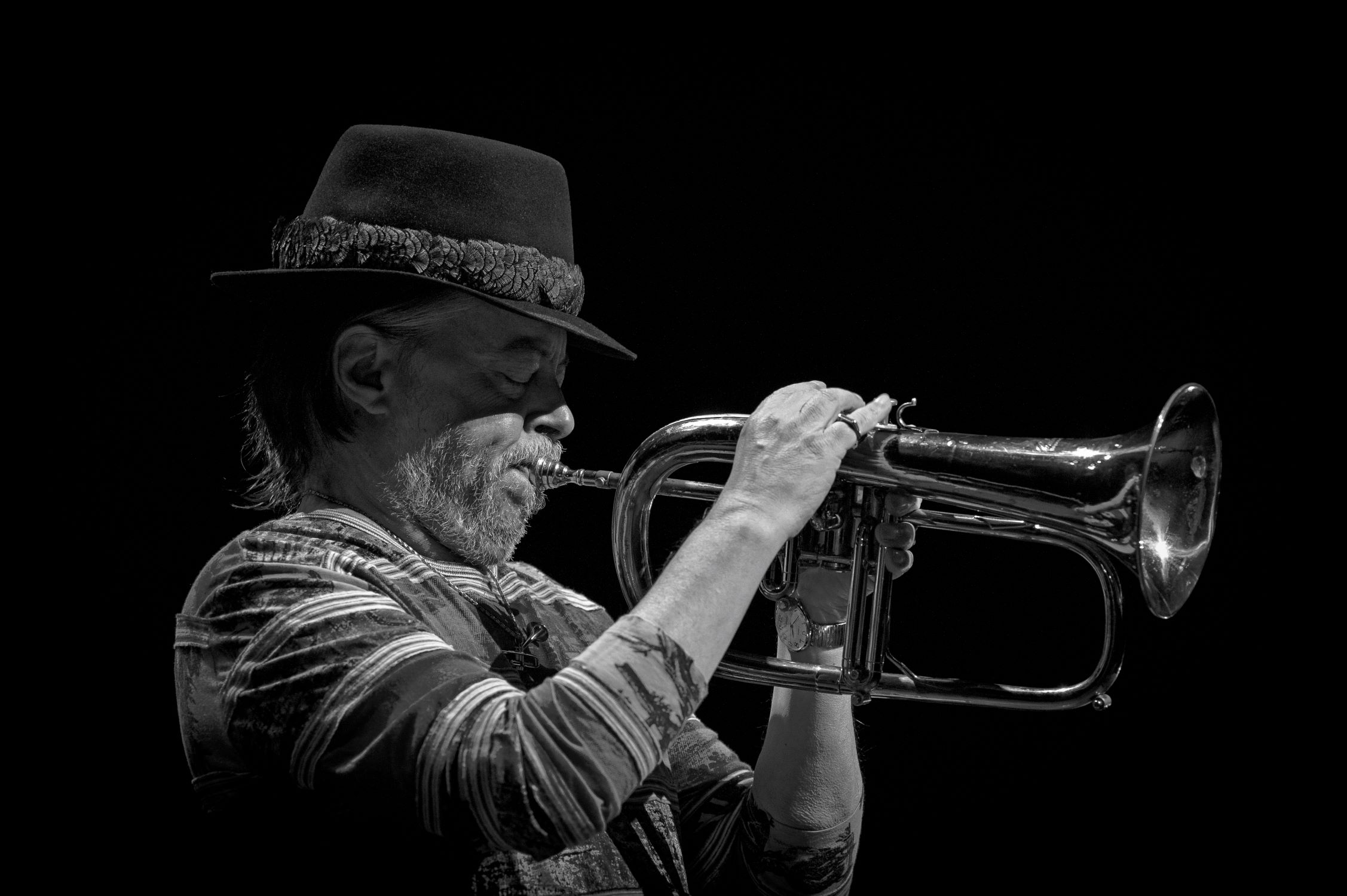

Jazz
Why Is Jazz Music So Relaxing
Modified: February 18, 2024
Discover the soothing and serene world of Jazz music as it melts away your stress and transports you to a state of ultimate relaxation. Explore the mesmerizing melodies and laid-back rhythms of Jazz.
(Many of the links in this article redirect to a specific reviewed product. Your purchase of these products through affiliate links helps to generate commission for AudioLover.com, at no extra cost. Learn more)
Table of Contents
Introduction
Jazz music is often hailed as one of the most influential and captivating genres in the history of music. With its origins deeply rooted in African American culture, jazz emerged in the early 20th century and has since become a global phenomenon. Renowned for its rich improvisation, complex rhythms, and soulful melodies, jazz has the power to transport listeners to another realm. But what is it about jazz music that makes it so incredibly relaxing?
From the smoky jazz clubs of New Orleans to the iconic sounds of musicians like Louis Armstrong and Miles Davis, jazz has left an indelible mark on the music landscape. Its melodic and harmonic intricacies, combined with the expressive nature of its performers, have made jazz an enduring favorite among music lovers of all generations. But beyond its cultural significance and musical prowess, jazz possesses a unique ability to soothe the soul and calm the mind.
Many people turn to jazz music as a form of relaxation, finding solace in its smooth melodies and gentle rhythms. The mellow and laid-back nature of jazz can create a peaceful ambiance, serving as a soundtrack for moments of introspection or unwinding after a long day. Whether it’s the silky sounds of a saxophone, the rhythmic pulse of a double bass, or the delicate touch of a piano, jazz has an uncanny ability to transport listeners to a state of tranquility.
Jazz music’s innate ability to relax the mind and body lies in its unique characteristics and the role of improvisation within the genre. By understanding the history, elements, and scientific aspects of jazz, we can better comprehend why this music has such a profound impact on our well-being and relaxation.
History of Jazz Music
The roots of jazz music can be traced back to the late 19th century in the African American communities of New Orleans, Louisiana. A fusion of African and European music traditions, jazz emerged as a form of expression for marginalized communities, ultimately becoming a symbol of cultural identity and resistance. It was in the vibrant streets of New Orleans that jazz took its first steps, drawing influence from ragtime, blues, and spiritual music.
As jazz spread throughout the United States in the early 20th century, it evolved and adapted to different regional styles and influences. The music found its way into the bustling jazz clubs of Chicago, the big band era of New York City, and the vibrant swing dance halls across the country. Iconic jazz musicians such as Louis Armstrong, Duke Ellington, and Charlie Parker emerged, pushing the boundaries of the genre and establishing jazz as a force to be reckoned with.
Jazz music has always been a melting pot of cultures and influences. The improvisational nature of the music allowed for countless variations and interpretations, creating a sense of freedom and individuality for the musicians. From bebop to cool jazz, from modal jazz to fusion, jazz continued to evolve with each passing decade, reflecting the social and political changes of the times.
Over the years, jazz has transcended borders and gained international recognition. It has influenced and been influenced by various musical genres, from Latin jazz to Afro-Cuban jazz, from smooth jazz to avant-garde jazz. Today, jazz remains an integral part of music education and continues to inspire countless musicians around the world.
The historical journey of jazz music is a testament to its resilience and ability to adapt. From its humble beginnings in the streets of New Orleans to becoming a universal language of expression, jazz has captured the hearts of millions and has become a symbol of artistic freedom and cultural diversity.
Characteristics of Jazz Music
Jazz music is characterized by a unique set of musical elements that distinguish it from other genres. Its distinctive qualities contribute to its relaxing and captivating nature. Here are some key characteristics of jazz:
- Improvisation: One of the most defining features of jazz is its emphasis on improvisation. Jazz musicians have the freedom to spontaneously create melodies, harmonies, and rhythms in the moment, allowing for endless possibilities and expression. This element of improvisation adds a sense of liveliness and unpredictability to jazz music.
- Swing Feel: Jazz is known for its distinctive swing feel, characterized by a syncopated rhythm that creates a sense of groove and bounce. This swinging rhythm gives jazz music a lively and infectious energy, making it irresistible to tap your feet or nod your head along to the beat.
- Complex Harmonies: Jazz music incorporates intricate and sophisticated harmonic structures. Musicians often use extended chords, altered notes, and chord substitutions, adding layers of complexity and richness to the music. These complex harmonies contribute to the depth and beauty of jazz melodies.
- Syncopation: Syncopation is another prominent feature of jazz music. It involves placing accents on unexpected beats or off-beats, creating a sense of rhythmic tension and excitement. The interplay between the rhythmic and melodic elements of jazz is what gives it its distinctive and captivating sound.
- Call and Response: Jazz often incorporates call and response patterns, where one musician or group plays a musical phrase, and another musician or group responds with a contrasting phrase. This interactive dialogue between musicians adds an element of spontaneity and interplay to jazz performances.
- Blues Influence: The blues is deeply intertwined with jazz music. Jazz often incorporates blues scales, progressions, and expressive techniques, infusing the music with a soulful and emotional quality. The blues influence adds depth and authenticity to jazz compositions and improvisations.
These characteristics, along with the individuality and creativity of jazz musicians, contribute to the captivating and relaxing nature of jazz music. The combination of improvisation, swing feel, complex harmonies, syncopation, call and response, and blues influence creates a rich tapestry of sound that envelops listeners in a soothing and pleasurable musical experience.
The Role of Improvisation in Jazz
Improvisation is at the heart of jazz music. It is a fundamental element that sets jazz apart from other genres and creates a sense of spontaneity and individuality. The ability to improvise allows jazz musicians to showcase their creativity, expressiveness, and technical skills in real-time performances. Here’s a closer look at the role of improvisation in jazz:
Freedom of Expression: Jazz improvisation gives musicians the freedom to express themselves through their instrument. By spontaneously creating melodies, harmonies, and rhythms, musicians can communicate their thoughts, emotions, and musical ideas in the moment. This freedom of expression allows for a unique and personal connection between the musician and the listener, making each performance a one-of-a-kind experience.
Sonic Exploration: Improvisation in jazz encourages musicians to explore different musical ideas and push the boundaries of traditional musical structures. It allows for experimentation with different scales, modes, and harmonic progressions, leading to innovative and unique musical expressions. Jazz musicians are constantly searching for new sounds and textures, and improvisation provides them with a platform to explore and expand their sonic palette.
Interaction and Collaboration: Jazz improvisation is not limited to individual musicians. It often involves collaborative improvisation, where musicians interact and respond to each other’s musical ideas. This interaction creates a dynamic and engaging musical conversation, with each musician adding their own voice and interpretation to the performance. The spontaneous interplay between musicians is a hallmark of jazz improvisation and adds an element of excitement and unpredictability to the music.
Showcasing Skill and Technique: Improvisation in jazz allows musicians to showcase their technical proficiency and mastery of their instrument. It requires quick thinking, a deep understanding of music theory, and an ear for melodic and harmonic possibilities. Through improvisation, jazz musicians can display their virtuosity, improvisational vocabulary, and ability to navigate complex chord progressions with ease. It is a testament to their musical skill and the years of practice and study they have dedicated to their craft.
Overall, improvisation plays a crucial role in jazz music, shaping its unique sound and allowing for constant innovation and creativity. It is the driving force behind the captivating and relaxing nature of jazz, as it creates a sense of immediacy and authenticity in each performance. Whether it’s a soulful saxophone solo, a intricate piano improvisation, or a blazing trumpet solo, improvisation breathes life into jazz music and makes it an ever-evolving and mesmerizing art form.
Jazz Music and Relaxation
Jazz music has a unique ability to induce a sense of relaxation and create a soothing atmosphere. Its mellow and melodic qualities, combined with the rhythmic elements of the genre, make it a perfect choice for unwinding and finding tranquility. Here’s why jazz music is often considered a go-to for relaxation:
Smooth Melodies: Jazz is known for its smooth and velvety melodies that effortlessly flow from the instruments. The gentle and melodic nature of jazz compositions allows listeners to enter a state of tranquility, providing a backdrop for relaxation and introspection. Whether it’s the warm tones of a saxophone, the delicate touch of a piano, or the rich resonance of a double bass, jazz melodies have a soothing and calming effect on our minds and bodies.
Mellow Rhythms: Jazz incorporates laid-back and mellow rhythms that invite relaxation. The gentle swing and groove found in jazz music create a sense of ease and comfort, allowing listeners to unwind and let go of stress. The rhythmic patterns of jazz often mimic the natural flow of breath, promoting a sense of calmness and relaxation as we synchronize our breathing with the music.
Expressive Performances: The emotional expressiveness of jazz musicians adds to the relaxing nature of the music. Jazz musicians are masters at conveying emotions through their instruments, infusing their performances with a depth of feeling that resonates with listeners. The soulful and heartfelt playing in jazz music has a soothing effect on our minds, helping us to release tension and connect with our emotions in a peaceful manner.
Timeless Classics: The timeless nature of jazz classics contributes to their ability to create a relaxing environment. The familiarity and nostalgia associated with jazz standards evoke a sense of comfort and ease. Listening to iconic jazz tunes can transport us to a different time and place, evoking feelings of nostalgia and providing a sense of harmony and relaxation.
Ambiance and Atmosphere: Jazz music is often associated with a specific ambiance and atmosphere, such as dimly lit jazz clubs or intimate lounges. This environment, combined with the mellowness of jazz music, creates a serene and cozy atmosphere that promotes relaxation and unwinding. Whether you’re listening to jazz in the comfort of your own home or at a live performance, the ambiance and atmosphere play a significant role in enhancing the soothing effects of the music.
Jazz music’s ability to relax and calm the mind is a testament to its beauty and artistry. Its smooth melodies, mellow rhythms, expressive performances, timeless classics, and calming ambiance all contribute to its soothing nature. Whether you’re seeking solace after a long day or simply looking to find moments of peace, jazz music provides the perfect soundtrack for relaxation and tranquility.
The Science behind Jazz’s Relaxing Effects
While it may seem subjective, there is scientific evidence to support the relaxing effects of jazz music on our minds and bodies. Researchers have delved into the neuroscience and psychology of music, uncovering the mechanisms behind the soothing and calming qualities of jazz. Here’s a look at the science behind jazz’s relaxing effects:
Neurological Impact: Listening to jazz music can have a profound impact on our brain activity. Studies have shown that certain musical elements, such as slow tempos, gentle melodies, and harmonious sounds, activate the parasympathetic nervous system, which is responsible for relaxation and stress reduction. These musical qualities stimulate the release of endorphins, dopamine, and serotonin, neurotransmitters that are associated with feelings of pleasure, relaxation, and well-being.
Heart Rate and Blood Pressure: The rhythmic and melodic qualities of jazz can have a direct impact on our physiological responses. Research suggests that listening to slow and soothing jazz melodies can help lower heart rate and blood pressure, promoting a state of relaxation and reducing stress levels. The rhythmic patterns found in jazz can also help synchronize our breathing and induce a calm and steady respiratory rate, further contributing to relaxation.
Mindfulness and Distraction: The complex nature of jazz music, with its intricate melodies and improvisational elements, can engage our minds and divert our attention away from stress and worries. Engaging with jazz music in a mindful and focused manner allows us to immerse ourselves in the present moment and create a mental space filled with tranquility and peace. This mindful engagement with the music can help reduce anxiety and promote a sense of calm.
Mood Enhancement: Music, including jazz, has a profound impact on our emotions. Listening to jazz can evoke feelings of nostalgia, happiness, and tranquility, leading to an overall improvement in mood. Jazz music’s ability to elicit positive emotions and create a serene atmosphere contributes to its relaxation-inducing effects. It can serve as a form of emotional regulation, helping us unwind and find solace in the music.
Reduced Cortisol Levels: Cortisol is a hormone associated with stress and anxiety. Studies have shown that listening to jazz music can help reduce cortisol levels in the body, promoting relaxation and reducing the physiological effects of stress. Lowering cortisol levels can have numerous benefits, including improved sleep quality, enhanced immune function, and a sense of calm and well-being.
The scientific understanding of the relaxing effects of jazz music provides insights into the therapeutic power of music as a whole. Jazz’s ability to stimulate relaxation responses in our brains and bodies, alter our physiological responses, and enhance our emotional well-being makes it an effective tool for stress reduction, relaxation, and promoting overall mental and physical health.
Benefits of Listening to Jazz for Relaxation
Listening to jazz music for relaxation brings not only an enjoyable musical experience but also numerous benefits for our mental, emotional, and physical well-being. Here are some of the key benefits of listening to jazz when seeking relaxation:
Stress Reduction: Jazz music has a unique power to calm the mind and reduce stress levels. Its soothing melodies, mellow rhythms, and expressive performances can help promote a state of relaxation, allowing us to release tension and unwind after a hectic day. The calming effects of jazz enable us to let go of stress and find inner tranquility.
Mood Enhancement: Jazz can have a positive impact on our mood and emotional well-being. The melodic and harmonious nature of jazz compositions can elicit feelings of joy, nostalgia, and serenity. These positive emotions help uplift our spirits and enhance our overall mood, allowing us to experience a sense of peace and contentment.
Improved Focus and Productivity: Jazz music’s engaging and complex nature can enhance our focus and improve productivity. The rhythmic patterns, melodic variations, and improvisational elements in jazz require attentive listening, which can help divert our attention from distractions and enhance concentration. Incorporating jazz into our work or study routine can create an atmosphere conducive to focus and productivity.
Promotes Mindfulness and Relaxation Techniques: Listening to jazz music can serve as a gateway to mindfulness and relaxation practices. The intricate melodies and improvisational elements encourage us to be fully present and engaged in the music, allowing us to cultivate a state of mindfulness. Moreover, incorporating deep breathing exercises or gentle movements while listening to jazz can enhance the relaxation experience and promote a sense of calm.
Enhanced Sleep Quality: Jazz music’s soothing qualities make it an excellent choice for improving sleep quality. Listening to jazz before bedtime can create a relaxing ambiance, promote a sense of tranquility, and help ease the mind into a restful state. The calming melodies and gentle rhythms of jazz can aid in reducing racing thoughts, anxiety, and insomnia, leading to a more peaceful and rejuvenating sleep.
Creative Inspiration: Jazz’s improvisational nature can have a profound impact on our own creativity. Listening to jazz can spark our imagination, ignite our artistic sensibilities, and inspire new ideas. The freedom and experimentation found within jazz music can encourage us to think outside the box and approach our own creative endeavors with a fresh perspective.
By incorporating jazz music into our daily lives, particularly during moments of relaxation, we can reap these benefits and unlock the therapeutic qualities of this captivating genre. Whether it’s to unwind after a long day, accompany a mindfulness practice, or set the mood for a peaceful evening, jazz provides a gateway to a world of relaxation and well-being.
Techniques for Relaxing with Jazz Music
Listening to jazz music is a wonderful way to relax and unwind. To enhance your relaxation experience and fully immerse yourself in the soothing sounds of jazz, try incorporating these techniques:
- Create a Relaxing Atmosphere: Set the mood for relaxation by creating a peaceful environment. Dim the lights, light some candles, or find a cozy spot where you can comfortably listen to jazz music without distractions.
- Choose the Right Jazz Playlist: Select a jazz playlist or album that aligns with your relaxation goals. Whether you prefer smooth jazz, cool jazz, or instrumental jazz, find the style and artists that resonate with you and create a sense of calmness.
- Practice Mindful Listening: Instead of passively listening to jazz, engage in mindful listening. Focus your attention on the intricate melodies, harmonies, and improvisations. Pay attention to the nuances of each instrument and let the music transport you to a state of tranquility and deep relaxation.
- Sync Breathing with the Music: Coordinate your breath with the rhythm of the music. Take slow, deep breaths, inhaling and exhaling in alignment with the tempo of the jazz music. This synchronizes your body and mind, promoting relaxation and creating a meditative state.
- Combine Jazz with Relaxation Techniques: Enhance your relaxation experience by combining jazz music with other relaxation techniques. Practice deep breathing exercises, meditation, or gentle stretching while listening to jazz to promote a deeper sense of calm and relaxation.
- Immerse Yourself in the Music: Allow yourself to be fully present with the music. Let go of distractions and immerse yourself in the sounds and emotions of the jazz music. Allow each note and melody to wash over you, transporting you to a state of relaxation and tranquility.
- Experiment with Instrumental and Vocal Jazz: Explore both instrumental and vocal jazz to find what resonates with you. Instrumental jazz can create a soothing and serene ambiance, while vocal jazz with its expressive lyrics can evoke emotions and deepen your relaxation experience.
- Engage with Jazz Improvisation: Pay attention to the improvisational elements in jazz music. Embrace the spontaneity and creativity of jazz by appreciating the musicians’ ability to create in the moment. The improvisational nature of jazz can inspire a sense of freedom and relaxation within you.
- Journal or Reflect Afterwards: After your jazz relaxation session, take a few moments to reflect on your experience. Write in a journal, capturing any thoughts, emotions, or inspirations that arose during your time with the music. This reflection can deepen the relaxation experience and provide insights for future sessions.
Remember, everyone’s preferences for relaxation may differ, so feel free to adapt and personalize these techniques to suit your needs. Jazz music offers a vast and diverse repertoire to explore, allowing you to curate your own collection of soothing and relaxing jazz compositions. With these techniques, you can fully immerse yourself in the world of jazz and discover the joy and tranquility it brings.
Conclusion
Jazz music holds a special place in the hearts of music lovers around the world. Its captivating melodies, complex harmonies, and soulful improvisation have the power to transport us to a state of relaxation and tranquility.
Throughout its rich history, jazz has evolved and adapted, touching the lives of people from all walks of life. From the vibrant streets of New Orleans to the iconic jazz clubs of New York City, jazz has become a global phenomenon, influencing countless musicians and inspiring generations.
The characteristics of jazz, such as improvisation, swing feel, and call and response, contribute to its unique ability to induce relaxation. The smooth melodies, mellow rhythms, and expressive performances of jazz create a soothing ambiance, fostering a sense of calmness and peace.
Scientific studies have shed light on the neurological and physiological benefits of jazz music for relaxation. From reducing stress and improving mood to promoting mindfulness and enhancing sleep quality, listening to jazz has been shown to have a positive impact on our well-being.
To fully enjoy the relaxing effects of jazz, techniques such as creating a calming atmosphere, choosing the right playlist, engaging in mindful listening, syncing breath with the music, and combining jazz with relaxation techniques can amplify the experience and deepen the relaxation effect.
Whether you’re seeking an escape from the stresses of everyday life, a moment of introspection, or simply a way to unwind and find inner peace, jazz music is a powerful tool. Its melodic beauty, expressive performances, and soothing qualities provide a sanctuary for relaxation and rejuvenation.
So, sit back, dim the lights, and let the smooth sounds of jazz wash over you. Allow yourself to be carried away by the melodies, transported to a place of serenity and tranquility. With jazz as your guide, you can discover the timeless allure of this captivating genre and find solace in its soothing embrace.











